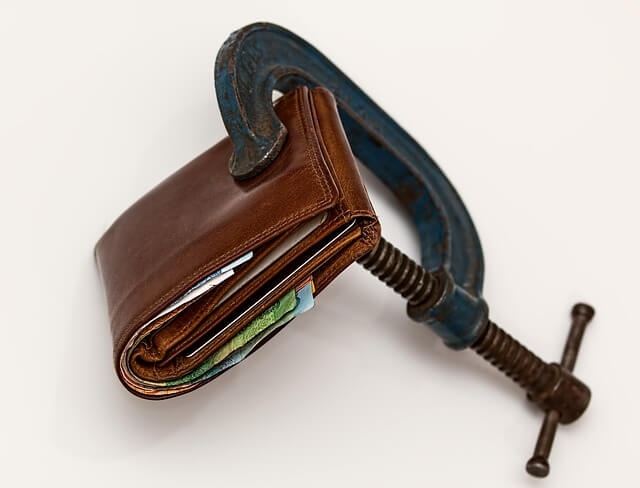If you’re a natural saver, you may easily stash away a nice pension pot during your working years. Once those pay cheques stop coming in though, your instincts may tempt you to cut right down on your spending. Maybe it goes against your frugal nature to draw down your savings. Maybe you’re a spendophobic!
If you have a defined benefit pension, then it may not feel so bad to spend it, since you have guaranteed income. But if not, then the thought of dipping into your pension pot or other savings each month may stress you out.
Know Your Budget

To spend stress-free during retirement, your first priority is to have a budget. Ideally, you should work out your budget several years before retirement. You then have the chance to get used to living within that budget before you retire. Once you’ve retired, there should ideally be no sudden changes in your spending patterns.
Your budget is not just about hard cash though; it’s about lifestyle. You need to cover your essential expenses; but you also need to spend in ways that increase your overall happiness. Once you’ve retired, you’ll no longer have the same social contacts that work gave you. Spending in ways that maintain a good social life is important.
Understand Risk

If you’re risk-averse, nothing can spoil your retirement more than the fear that you might lose everything in a market crash. Life always entails risk, but knowing how much investment risk you can afford to take is the key. The right amount of risk for you depends not only on your personal appetite for risk, but also on your individual circumstances. Taking too little or too much investment risk might endanger your long-term finances. Getting the balance right is hard; but doing so can boost your confidence in retirement enormously.
Balancing risk partly involves choosing the right types of investment for you. It also involves knowing whether and when to generate some or all of your income from an annuity. Doing so may drastically reduce risk. However the money you spend on an annuity will no longer be available to pass on to your heirs.
Remember Your Uncertain Life Expectancy

Okay, let’s assume you’ve now got budgeting and risk management under control. But if you make the wrong assumptions about your life expectancy, you risk running out of money if you live for a long time. Many people budget for a fixed lifespan; this is too arbitrary. It’s important to factor in an uncertain life expectancy into your calculations. If you buy an annuity, your longevity risk is removed. But relying wholly on an annuity isn’t right for everyone.
Even for a single person, uncertain life expectancy is a major complication in retirement planning. For a couple, life expectancy is even more complex; the chances are increased that at least one member of a couple will live well beyond their life expectancy.
Have A Contingency Budget

There are some things that you simply can’t plan for in detail, but if they happen they’d make a nasty dent in your finances. These might include things like long-term care, or unforeseen spending to help out a child, just as examples. For such things, you should set aside a separate budget from your day-to-day spending budget. Some people might feel more comfortable creating a separate ring-fenced contingency fund, invested separately from everything else.
Be Flexible

The assumptions you made at the start of your planning may no longer hold later on. If you stick rigidly to your initial plan, you may run the risk of running out of money. Or maybe you won’t take advantage of good fortune by spending a bit more.
Every so often, it’s important to recalibrate your plan. You may find that you need to cut back slightly to keep yourself on track. This might be if the market takes a dip. It could also be if you ran up unexpected spending, which depleted your contingency fund. Or if you’re lucky, you may find that you can afford to spend a bit more on luxuries.
If you started with a well thought out plan, then any adjustments you make should not be too uncomfortable or drastic.
Using our intelligent financial planning calculator, you can work out your sustainable budget. It takes account of all the things I’ve touched upon in this article. Unlike other online calculators, ours doesn’t make over-simplifying assumptions. And uniquely, you don’t need to rely on trial and error, as its built-in AI does the hard work for you.
